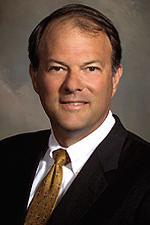CENTER FOR SLEEP DISORDERS
The Center for Sleep Disorders uses a fully-equipped overnight sleep laboratory and outpatient monitors and tests to diagnose, quantify and treat insomnia, sleep apnea, narcolepsy, restless leg syndrome, and other sleep problems in adults and children.
Services provided at CRMC:
- Diagnostic sleep studies determine what happens during sleep that causes different sleep problems. Sensors called polysonograms are attached to the patient’s head, chest, and legs, and record brain activity, eye movements, breathing patterns, airflow, heart rate and rhythms and body movements during the night. The procedure is pain free.
- CPAP titrations are used to treat sleep apnea patients. Sleep apnea is a medical condition that causes patients to stop and start breathing during sleep, usually without knowing it. Patients are fitted with a Constant Positive Airway Pressure (CPAP) device worn over the mouth or nose. The machine pumps a constant flow of the right amount of room air into the patient’s nasal passages, keeping the airways open and allowing for a deeper, more restful, healthful sleep.
- Multiple Sleep Latency tests (MSLT) diagnose the level of sleep problems and especially narcolepsy. Individuals with narcolepsy not only experience excessive daytime sleepiness but also the inability to stay awake, often falling asleep quickly and at inappropriate times. MSLTs use polysomnograms to measure how quickly a person falls asleep and the stages of sleep when asked to take short daytime naps every two hours.
Sleep problems
One out of every three Americans develop sleep problems during their lives. Poor sleep affects emotional and physical well-being, and can lead to significant medical complications. Sleep problems that often bring patients to the Coffee Regional Sleep Center include:
- Insomnia: The inability to fall or stay asleep at night
Sleep Apnea: When you stop breathing for short periods of time while asleep, usually without knowing it. Sleep partners are often the ones who notice the gasps, snoring and snorting sounds that accompany sleep apnea. Patients themselves experience excessive daytime sleepiness and morning headaches. - Narcolepsy: Excessive daytime sleepiness. Patients often lack the inability to stay awake and fall asleep at inappropriate times, sometimes experiencing intense daydreams or dream-like hallucinations while falling asleep. Other symptoms include the loss of muscle control that occurs with strong emotions, such as laughing or anger and the inability to move when falling asleep or waking up.
- Restless leg syndrome: The irresistible urge to move one or both legs shortly after getting into bed, or in the middle of the night after awakening, usually relieved by moving or rubbing the leg. Other symptoms include a twitching feeling in the calves, feet, thighs or arms.
- Pediatric sleep problems: Can cause distinct symptoms including snoring, bedwetting, walking or talking during sleep, excessive daytime sleeping and night terrors. Because children’s bodies are smaller, sleep studies at the Coffee Regional Sleep Center use special equipment to measure levels of oxygen and carbon dioxide levels.
When to seek medical help:
- If sleep does not improve with self-help techniques
- If you regularly feel tired upon awaking and/or are constantly fatigued
- If you think your sleep problems are related to an underlying condition, such as depression, heart failure or high blood pressure, or you suspect medications may be causing your sleep problems
- If you snore loudly or make snorting, gasping noises while sleeping
- If you fall asleep while doing normal activities, such as talking or driving
